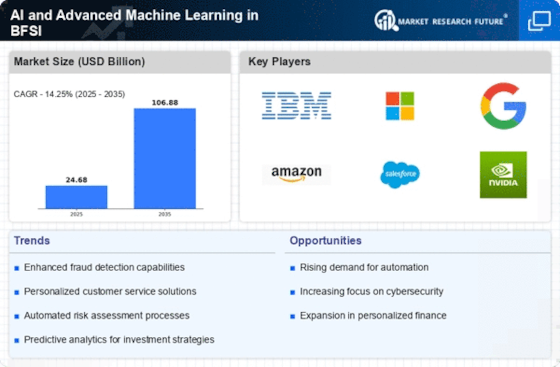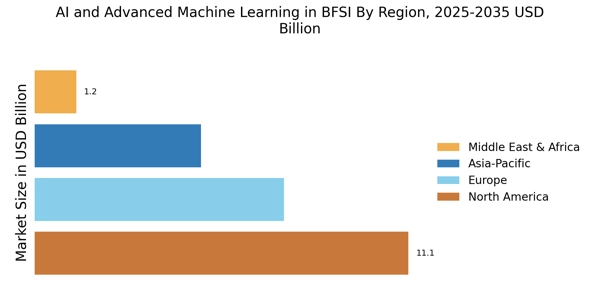Enhanced Fraud Detection
The AI and Advanced Machine Learning in BFSI Industry is increasingly utilized to enhance fraud detection mechanisms. By leveraging advanced algorithms, financial institutions can analyze vast amounts of transaction data in real-time, identifying patterns that may indicate fraudulent activity. This capability is particularly crucial as the financial sector faces rising threats from cybercriminals. According to recent data, institutions employing AI-driven fraud detection systems have reported a reduction in fraud losses by up to 30%. This not only protects consumers but also bolsters the overall integrity of the financial system, fostering greater trust among stakeholders.
Data-Driven Decision Making
The AI and Advanced Machine Learning in BFSI Industry facilitates data-driven decision making, enabling institutions to harness the power of big data analytics. By analyzing customer behavior, market trends, and risk factors, financial organizations can make informed decisions that enhance profitability and customer satisfaction. The ability to predict market movements and customer needs through machine learning models allows for more strategic product offerings. Studies suggest that firms utilizing data analytics in their decision-making processes have seen a 15% increase in revenue, underscoring the importance of AI in shaping competitive strategies.
Risk Assessment and Management
In the AI and Advanced Machine Learning in BFSI Industry, risk assessment and management are being revolutionized by advanced predictive analytics. Financial institutions are employing machine learning algorithms to evaluate credit risk, market risk, and operational risk more accurately. These technologies enable organizations to identify potential risks before they materialize, allowing for proactive measures to mitigate them. Data indicates that institutions utilizing AI for risk management have improved their risk assessment accuracy by 40%, leading to more informed lending decisions and enhanced financial stability.
Customer Experience Enhancement
The AI and Advanced Machine Learning in BFSI Industry plays a pivotal role in enhancing customer experience through personalized services. By analyzing customer data, financial institutions can tailor their offerings to meet individual preferences and needs. This personalization extends to product recommendations, targeted marketing campaigns, and customized financial advice. As a result, customer engagement levels have improved, with studies indicating that personalized experiences can lead to a 25% increase in customer loyalty. This shift towards customer-centric strategies is essential for institutions aiming to retain clients in a competitive market.
Operational Efficiency Improvement
In the AI and Advanced Machine Learning in BFSI Industry, operational efficiency is significantly enhanced through automation and predictive analytics. Financial institutions are increasingly adopting AI technologies to streamline processes such as loan approvals, customer service, and compliance checks. For instance, chatbots powered by machine learning can handle customer inquiries 24/7, reducing the need for extensive human resources. Reports indicate that organizations implementing AI solutions have experienced a 20% reduction in operational costs, allowing them to allocate resources more effectively and focus on strategic initiatives.


















